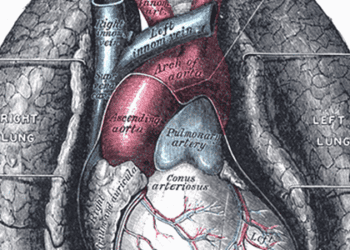High dose multivitamin supplements do not decrease disease progression or death in HIV patients receiving HAART
Image: CC/Rageross
Key study points:
1. Absolute risk of HIV progression or death did not change between the high dose vitamin supplementation group vs. the standard vitamin supplementation group.
2. High dose multivitamin supplementation did not affect CD4 count, plasma viral load, BMI or hemoglobin level concentration.
3. Increased risk of ALT elevations were noted in the high dose group in comparison to the standard dose group.
Primer: According to 2010 WHO statistics, 34 million people were living with HIV worldwide, with 2.7 million new infections and 1.8 million AIDS-related deaths, 1.2 million, or 69% of which were coming from Africa. These numbers reflect a significant decrease in morbidity and mortality over the last 15 years, attributable to the introduction of highly active antiretroviral therapy (HAART), 3 to 4 combination of different classes of anti-retrovirals including: nucleoside (and nucleotide) reverse transcriptase inhibitors (NRTIs), non-nucleoside reverse transcriptase inhibitors (NNRTIs), protease inhibitors (PIs), integrase strand transfer inhibitors (INSTIs), and CCR5 antagonist. The efficacy of HAART has been limited by incomplete immune reconstitution, risk of opportunistic infections, and general toxic adverse effects of anti-retroviral treatments ART. Multi-vitamins have subsequently been used as adjuvant therapy for maintenance of immune function and neutralizing oxidative stress.
For HIV patients not on HAART, high doses of vitamin B, C, and E have been shown to reduce risk of morbidity and mortality but evidence for those already on HAART has been limited. As a result, this study was launched to examine if high dose multi-vitamin supplementation, in comparison to standard dose, decreases the risk of HIV progression or death, while also examining whether it would reduce adverse effects and improve immunological, virological, and nutritional parameters for those on HAART.
Background reading:
1. WHO HIV/AIDS World Health Organization. Accessed 25 October 2012.
2. Selecting antiretroviral regimens for the treatment naive HIV-infected patient UpToDate. Accessed 25 October 2012.
3. Carr A, Cooper DA et al. Adverse effects of antiretroviral therapy. Lancet. 2000;356(9239):1423-1430.
This [double-blind, randomized controlled study]: enrolled 3418 men and women with HIV initiating HAART in Dar es Salaam, Tanzania between November 2006 and November 2008. Patients were randomly assigned to receive daily oral supplements of vitamin B, C, and E at standard or high levels of RDA (recommended dietary allowance) for at least 24 months.
Primary outcome included both HIV disease progression or death from any cause. A total of 2374 HIV disease progression events and 453 observed deaths was observed. The study was stopped in March 2009 due to increased levels of ALT in the high dose group. Patients in the high-dose group did not differ in the overall risk of HIV disease progression or death vs. standard dose group (RR 1.00). In further analysis, there were no significant differences in CD4 count, plasma viral load, BMI, or hemoglobin concentration between the two groups. ALT elevations above the upper limit of normal were significantly greater among patients in the high dose group vs. standard dose group (IRR 1.44).
In sum: This represents the first randomized trial to assess the impact of high dose multi-vitamin supplementation on clinical outcomes for patients already on HAART. There were no differences in absolute risk of HIV progression and death, CD4 count, plasma viral load, BMI, or hemoglobin level concentration between the 2 groups. One adverse effect of high dose supplementation was ALT elevation, for which additional research on the interaction between micronutrients and antiretrovirals must be performed to elucidate the exact mechanism. Given these conclusions, it is recommended for patients on HAART to continue to follow multi-vitamin supplementation at RDA levels, while future dose-finding trials should be completed to identify the optimal multi-vitamin dose that may be safely taken alongside HAART.
Click to read the study in JAMA
By [EP] and [RR]
© 2012 2minutemedicine.com. All rights reserved. No works may be reproduced without written consent from 2minutemedicine.com. DISCLAIMER: Posts are not medical advice and are not intended as such. Please see a healthcare professional if you seek medical advice.




